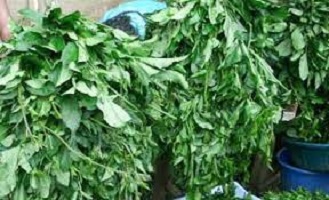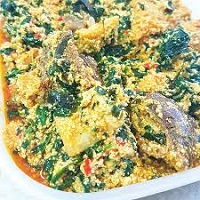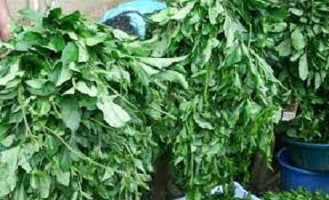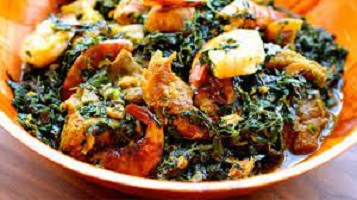How to Preserve Ugu Leaves Without a Refrigerator
How to Preserve Fresh Ugu Leaves Without a Refrigerator ~ Please watch >>>>
- Easy ways to preserve food without refrigeration
- How to preserve ugu leaves
- Health benefits of ugu leaves
- How to always keep ugwu leaf fresh when you buy it from the market
How to preserve Fresh Ugu leaves

When you see vegetables withering it means it is losing water – wrap them in an old newspaper because when leaves are wrapped in newspaper, it helps vegetables not to lose water.
Ugu leaves, also known as fluted pumpkin leaves, are green leaves originating from Africa. Ugu leaves are high in nutrients and are used in soups and other dishes.
Fluted pumpkin leaf at harvest has over 70% water content and after which it begins to undergo high rates of respiration, quality deterioration, and potential microbial spoilage.
In Nigeria, they are often added to soups, stews, and sauces. The leaves can also be eaten raw or steamed
How to preserve Fresh Ugu leaves? Ugu leaves can be preserved by;
- Refrigerating
- Freezing
- Air-drying
How to preserve Fresh Ugu leaves without a refrigerator
- Firstly, try to get the greens as dry as you can, Yes, you heard right. If you go to the market, tell the ugu seller/ vegetable to give you one that water has not touched.
- Do not buy vegetables that have water on them if you want to preserve them for a long time. The dry ones keep for a longer time.
- Then, get rid of any bad leaves, because one bad leaf could ruin the bunch.
- After that, keep the greens whole, by that I mean you should not cut or slice the vegetables unless you are using them immediately, the next day or two.
- Lastly, wrap the leaves properly with old newspapers and store the greens in an airy dry place.
Do this and thank me later.
How to Preserve Your Fresh Produce
With the hot Nigerian heat and intermittent power supply, it might be difficult to stock up on fresh food.
Green vegetables
Before refrigerating fresh vegetables such as ugu, water leaf, or ewedu, place them in firmly sealed plastic bags with a bit of air contained within them.
Dry vegetables can be wrapped in newspaper and left on a shelf or countertop.
Plantains and bananas
Instead of refrigerating bananas and plantains, leave them out to ripen naturally.
Wrap the bunch’s head in a nylon/plastic bag to keep the suckers from over-ripening.
Tomatoes
Unspoiled but punctured ones can be diced or blended, boiled, and frozen for fast meals. Other fruits
Fruits should be kept in separate baskets to avoid over-ripening.
To avoid uneven ripening and rotting, separate ripe fruits from unripe or less matured ones.
Garlic, Onions, and ginger
Keep these together in an open rack or basket. They can also be preserved in perforated bags, mesh bags, or even old pantyhose.
Eggs
Eggs should be stored in a crate, unwashed of their bloom, in a cool, dry environment. If they have been washed, they should be refrigerated and consumed as soon as possible.
Food can be preserved in a variety of ways, including drying, canning, and smoking. However, if you prefer your fruit to be as close to its natural state as possible, we hope you enjoy it.
FAQs about How to preserve Fresh Ugu leaves
Health benefits of ugu leaves ~ what does Ugu leaf do to the body?
Because of its high iron and mineral content, it functions as a blood booster. Ugu also prevents and treats anemia, which is a blood-related illness.
It contains folate, which aids in the production of hemoglobin and red blood cells in the body. Ugu is also an anti-diabetic agent.
How do you keep Ugu leaves if you don’t have a fridge?
You can also keep Ugwu in the deep freezer. Wash, slice, and drain the water through a strainer. Keep in the freezer for up to 1 week without nutrient loss.
How do you preserve fresh pumpkin leaves?
Dehydrate Pumpkin Leaves
- Select fresh, young, supple leaves and, if necessary, remove stringy veins.
- Thoroughly wash.
- Form into a cigar shape.
- Slice into strips.
- Spread out on dehydrator trays.
- Dry till crisp at 125°F/52°C.
- Condition
- Store for up to a year in an airtight container.
How do you keep green veggies if you don’t have a refrigerator?
Leafy greens wilt rapidly. To keep them fresh, place them in airtight bags and seal them tightly.
Citrus fruits, such as lemons, oranges, tangerines, and limes, have a longer shelf life than other fruits.
To make them survive even longer, store them in perforated plastic bags in a cold, dark spot.
How do you keep food fresh without refrigeration?
Because germs grow in a damp environment, drying is an excellent method for food preservation because it removes all water and allows food to be stored securely for an extended amount of time.
You can use a food dehydrator, a low-temperature oven, or the sun to dry it. Smoking is one of the most effective methods of preserving meat and fish.
How do you keep fresh vegetable leaves fresh? Keeping leafy greens fresh by storing them
Rinse, wrap in a paper towel or tea towel, then refrigerate in a container or sealed plastic bag to keep leafy greens fresher for longer.
This method works well with lettuce greens, bok choy, Swiss chard, kale, and spinach.
What is the English word for ugu?
The plant is also known as fluted gourd, fluted pumpkin, ugu (in Igbo), and ikong-ubong (in the Efik and Ibibio languages).
The botanical name for ugu is. Telfairia occidentalis
How do you keep vegetables fresh while traveling?
Place food in zip-top plastic bags or sealable Tupperware containers.
This will prevent moist or leaking food from infecting other goods in the cooler.
Try to be as space-conscious as possible by packing items in bags and containers that are only large enough to carry them.
Pumpkin Leaves: How to Preserve and Store Them
Fresh pumpkin leaves lose flavor and nutritional value nearly soon after harvesting.
They can, however, be frozen and preserved in plastic freezer bags for up to three or four weeks by separating each row with paper towels
Is it possible to dehydrate pumpkin leaves?
Here are the three best methods for drying pumpkin leaves at home: air drying (the traditional approach), using a Food Dehydrator, and drying them in an oven.
Air drying is the slowest and most expensive method, whereas food dehydrators and ovens are faster but require additional equipment.
What can I do with pumpkin leaves?
Pumpkin leaves are delicious in soups, stews, and sautéed dishes.
They can be used in place of collard or turnip greens in any dish. Raw pumpkin leaves can also be eaten in salads.
Choose only the smallest, youngest leaves for fresh eating because they will be the most sensitive
What vegetable does not require refrigeration?
If left out on the counter, apricots, Asian pears, avocado, bananas, guava, kiwis, mangoes, melons, nectarines, papayas, passion fruit, pawpaw, peaches, pears, persimmons, pineapples, plantain, plums, starfruit, soursop, and quince will continue to ripen.


